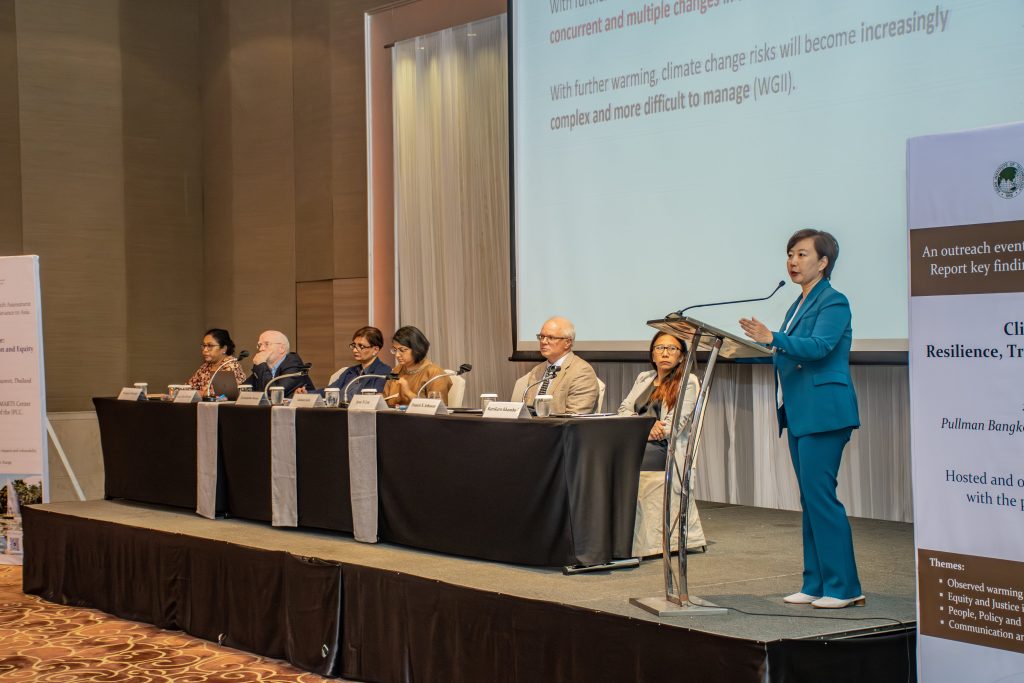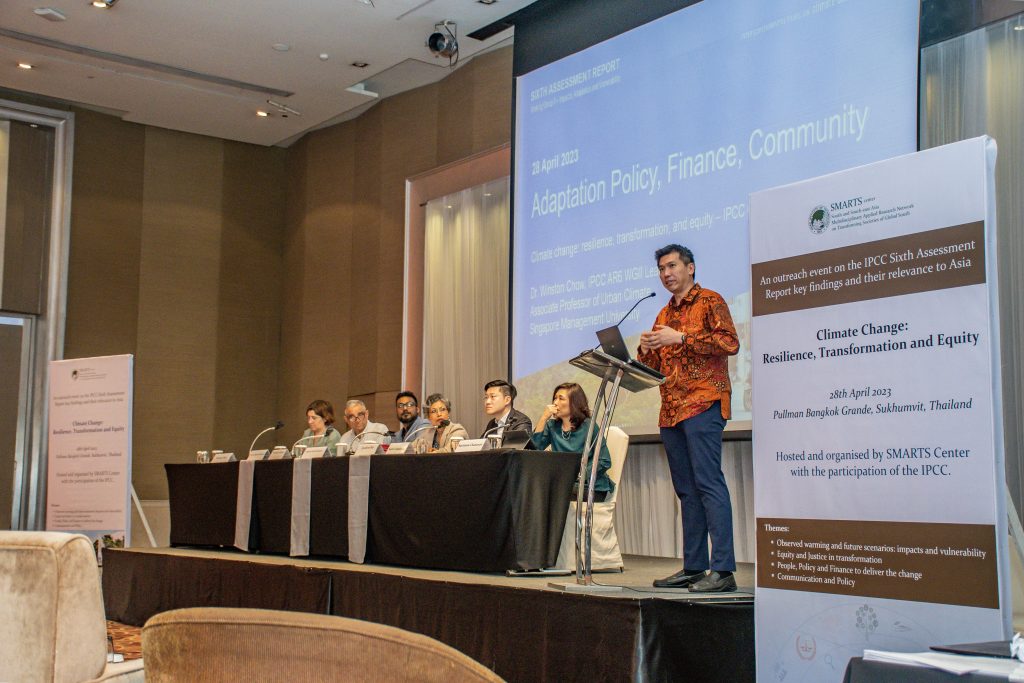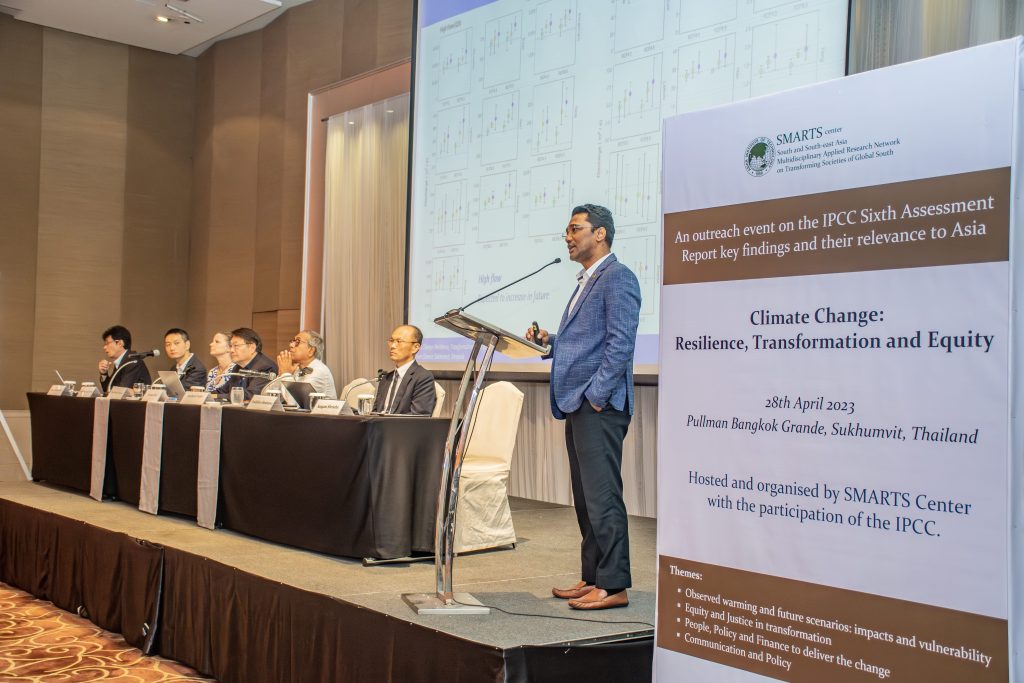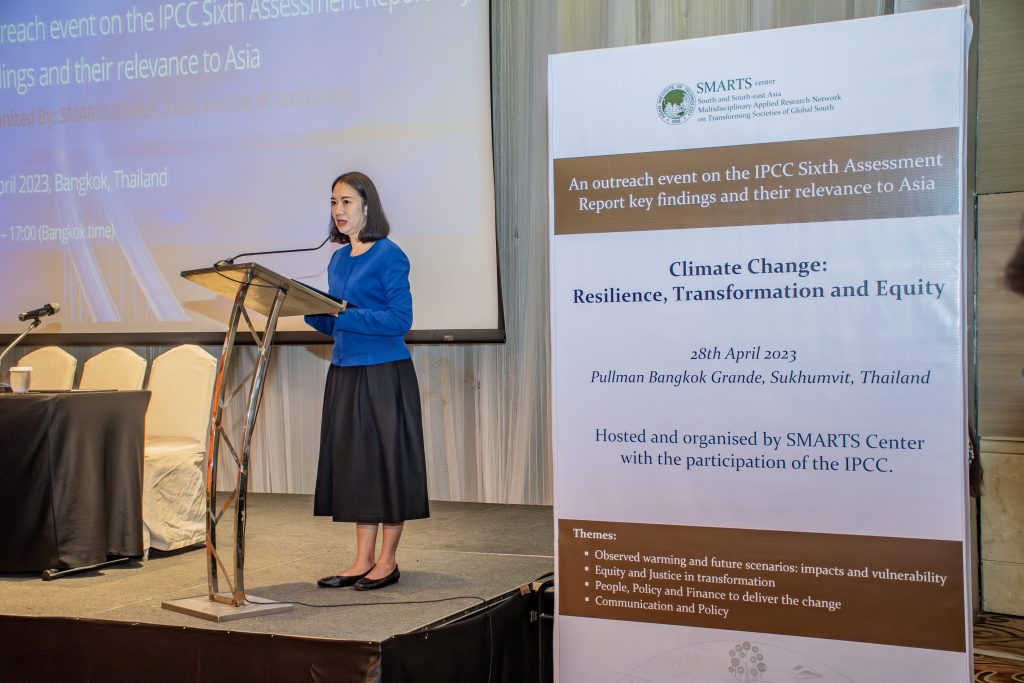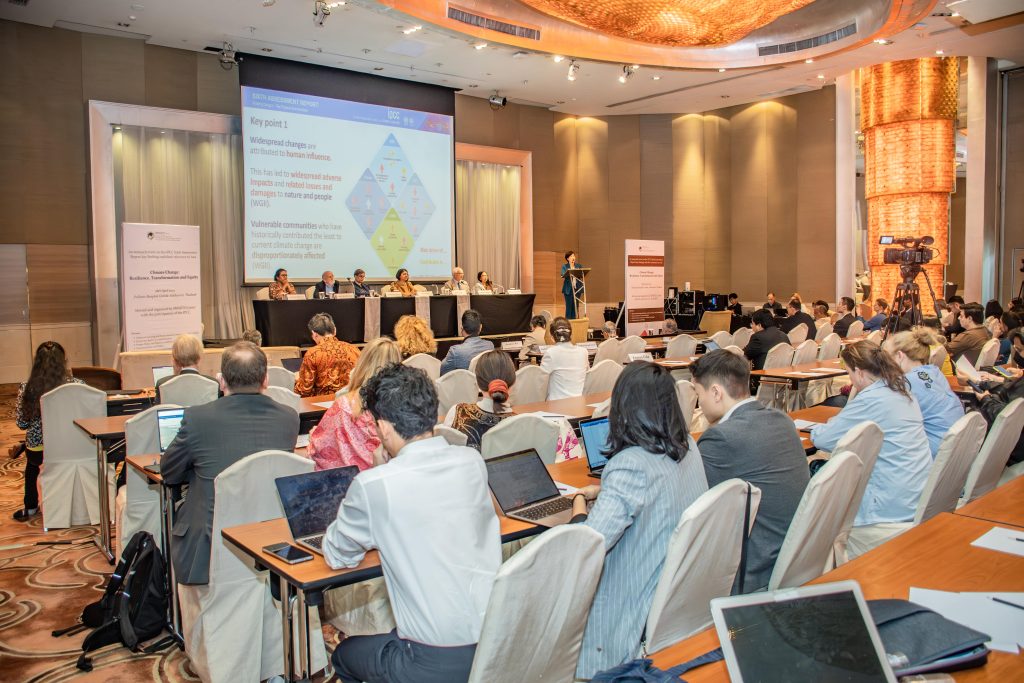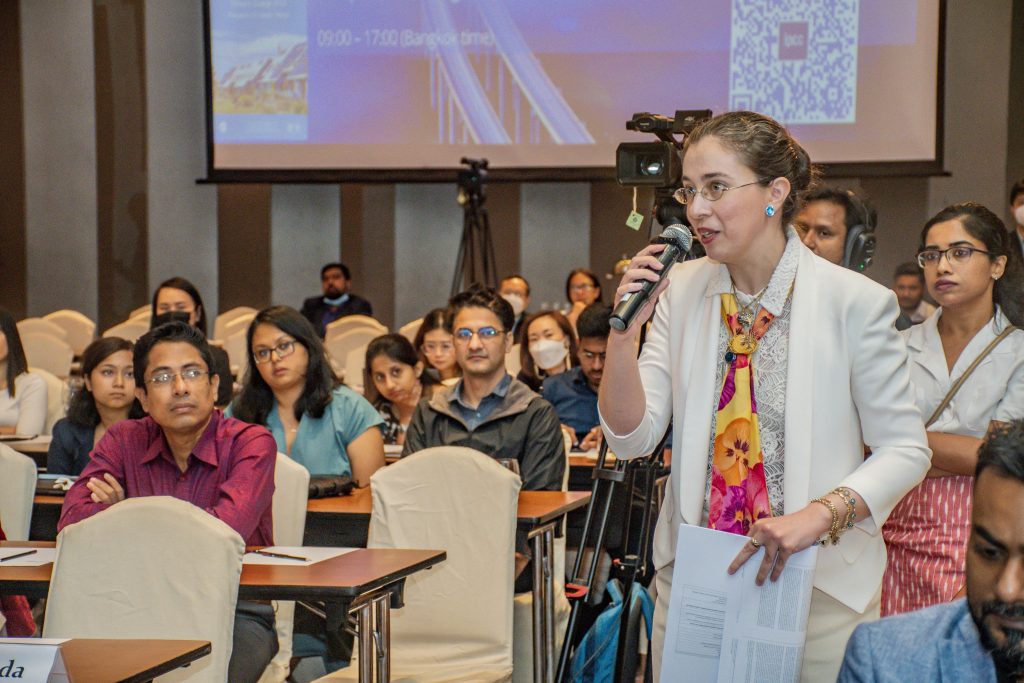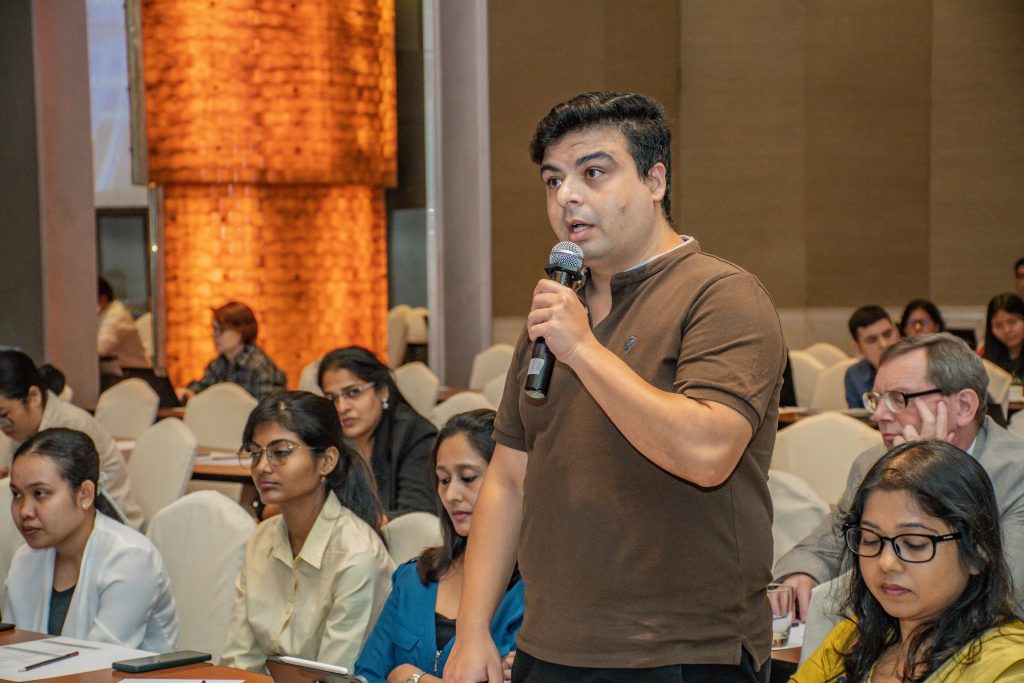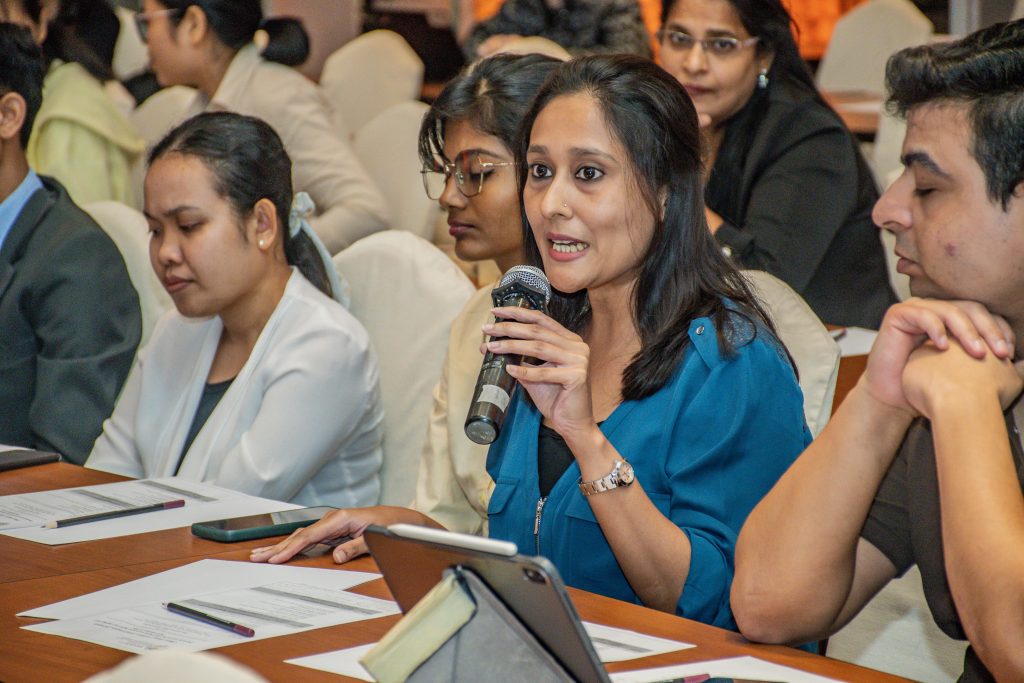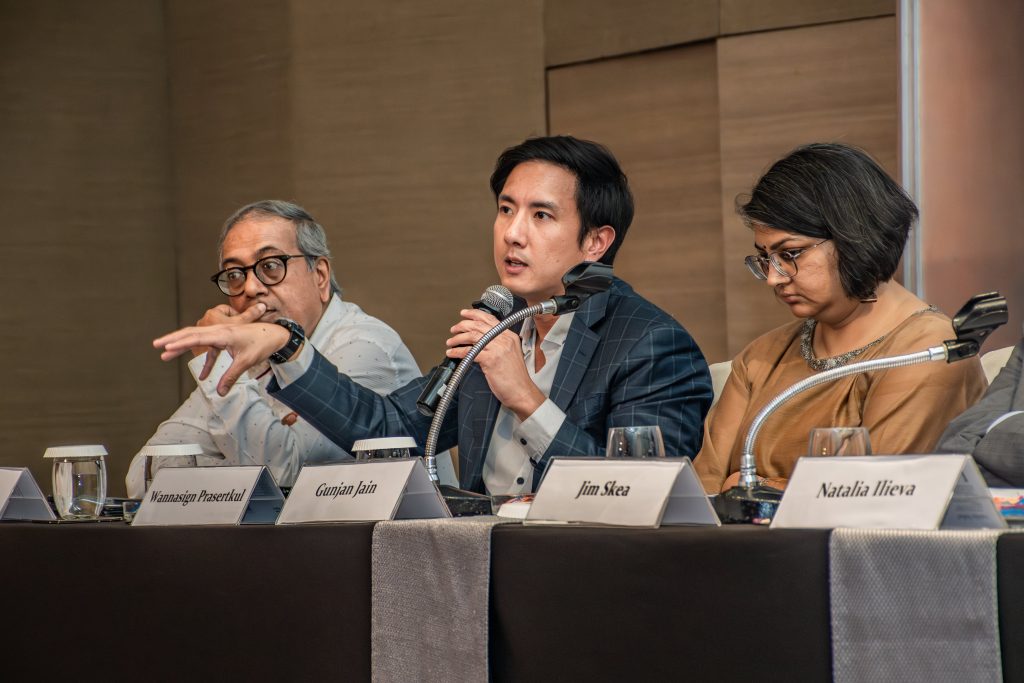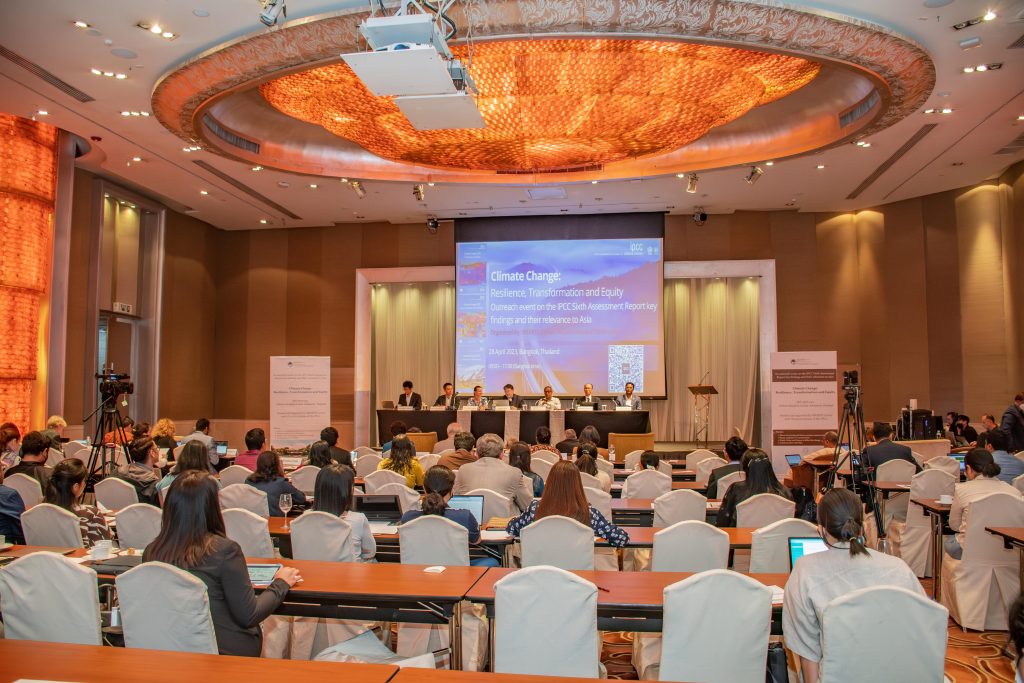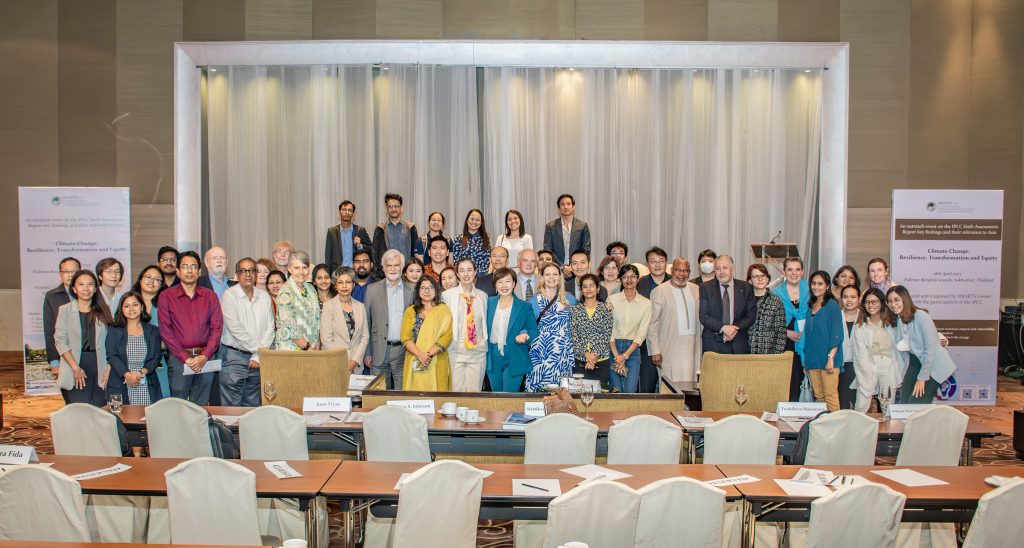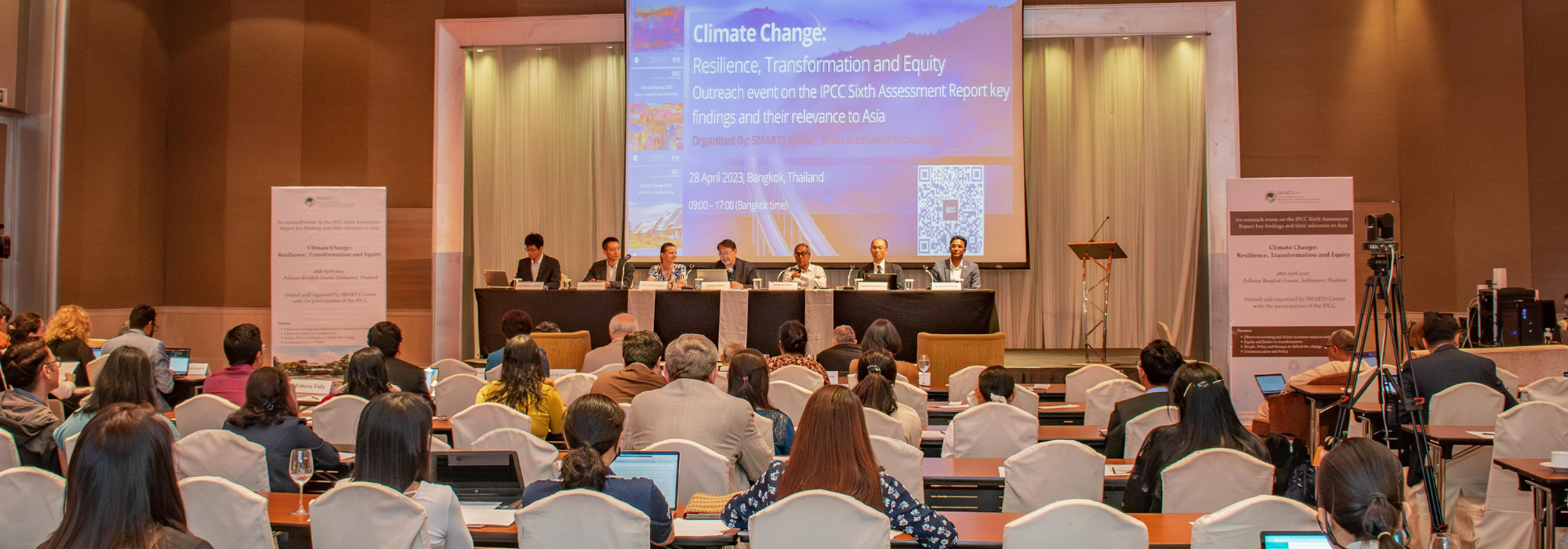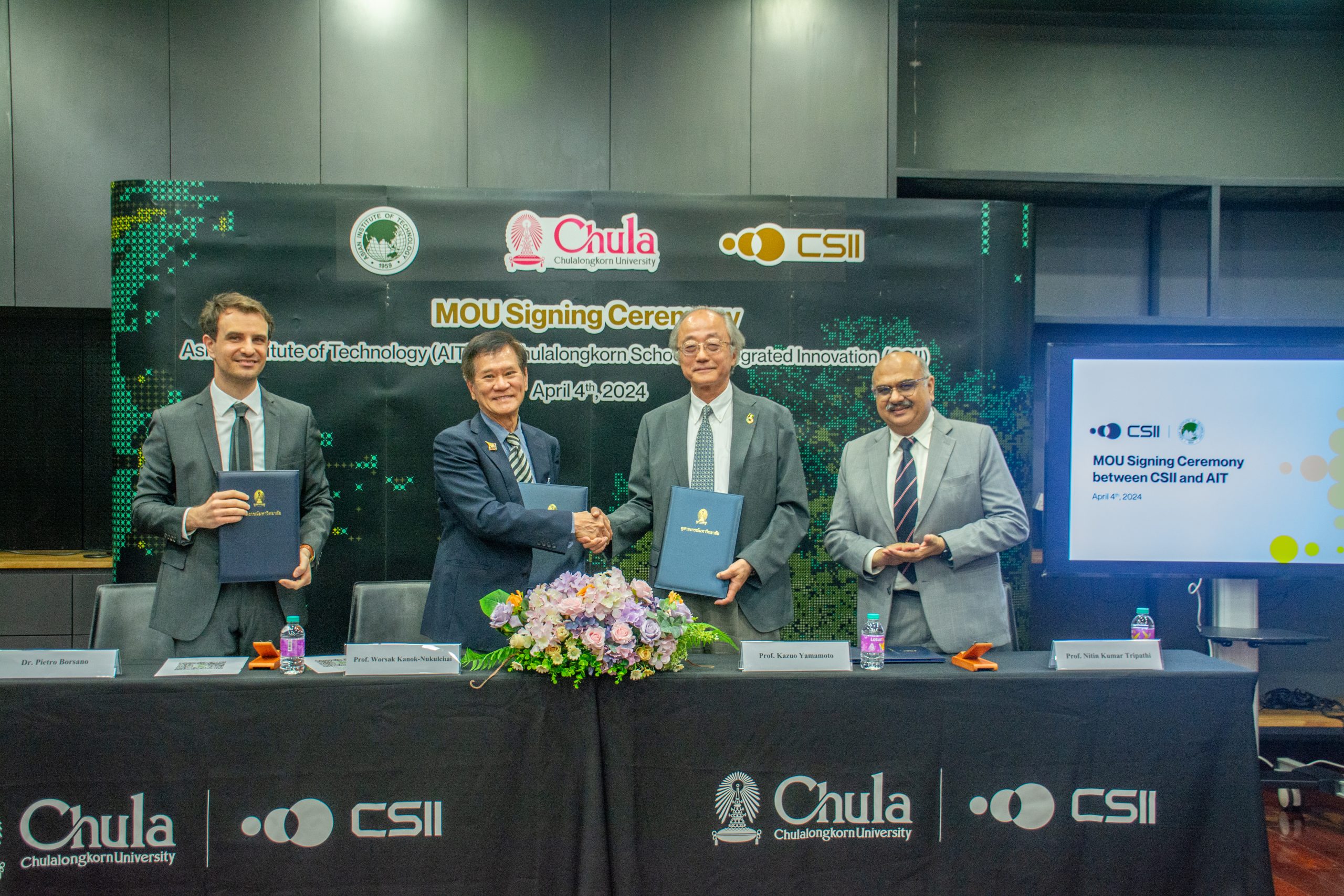SMARTS Center, with participation from IPCC, come together to discuss issues around Climate Change in Asia
Bangkok, Thailand – The SMARTS Center of the Asian Institute of Technology (AIT) successfully hosted an outreach event titled “Climate Change: Resilience, Transformation, and Equity” with the participation of the Intergovernmental Panel on Climate Change (IPCC) on 28th April 2023. The event was held in Bangkok and was attended by over 125 onsite participants and several hundred online from diverse backgrounds, such as government, academia, civil society organizations, climate activists, investors, the financial sector, and the private sector.
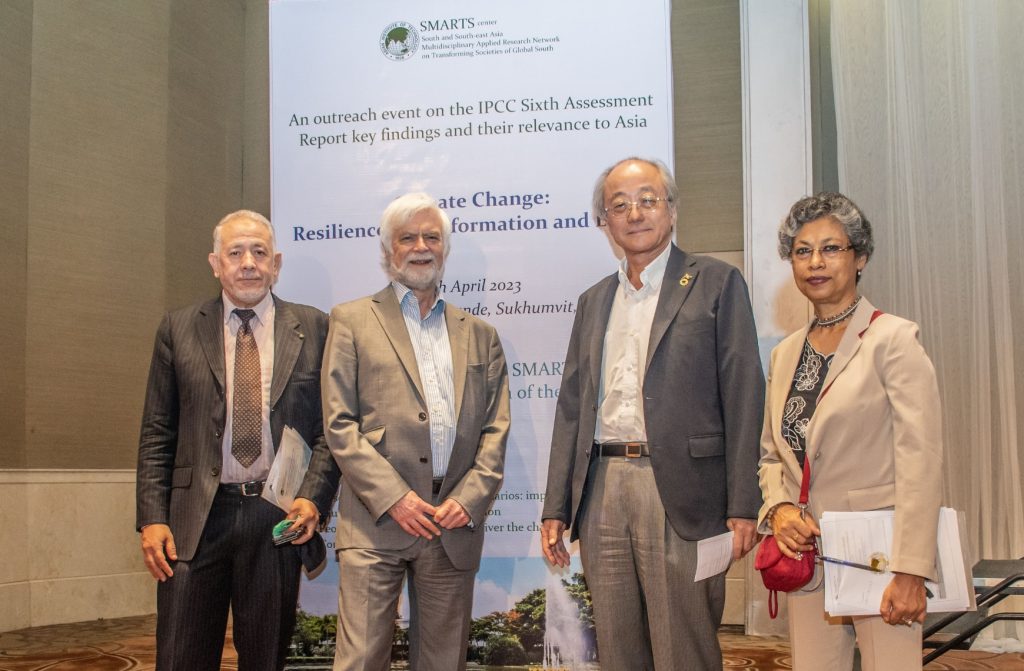
The event was held after the recent completion of a closed-door IPCC Scenario workshop that summarised current modeling efforts, identified gaps and opportunities, and a shared understanding among the participants discussing models and model outputs for model intercomparisons and a way forward to the Seventh Assessment Cycle (AR7).
The event aimed at communicating the main results of the IPCC Sixth Assessment Report focusing on messages relevant to Thailand and the region. The report includes three Working Group contributions and a Synthesis Report, providing comprehensive assessments of the state of scientific, technical, and socio-economic knowledge on climate change, its impacts and future risks, and options for reducing the rate at which climate change is taking place.
The SMARTS Center at AIT, which focuses on the impact of climate change and other socio-technical changes that is and are needed in transforming societies in South and South-East Asia, organized the event to promote scientific voices from the global South highlighting unique challenges, equity, justice, and regional niches in line with multiple Sustainable Development Goals.
AIT Interim President Prof. Kazuo Yamamoto thanked the IPCC Secretariat and all participants and said, “This gathering of the regional climate research and practitioner community, governments, policymakers, decision-makers, businesses, civil society organizations, and climate activists is a significant step to address the greatest global challenge of our time. SMARTS center is engaged in developing models for decarbonisation pathways for the power sector for multiple countries in the region, including Thailand; and is building modeling capacity for young researchers in Bangladesh, Pakistan, India, and Thailand.”
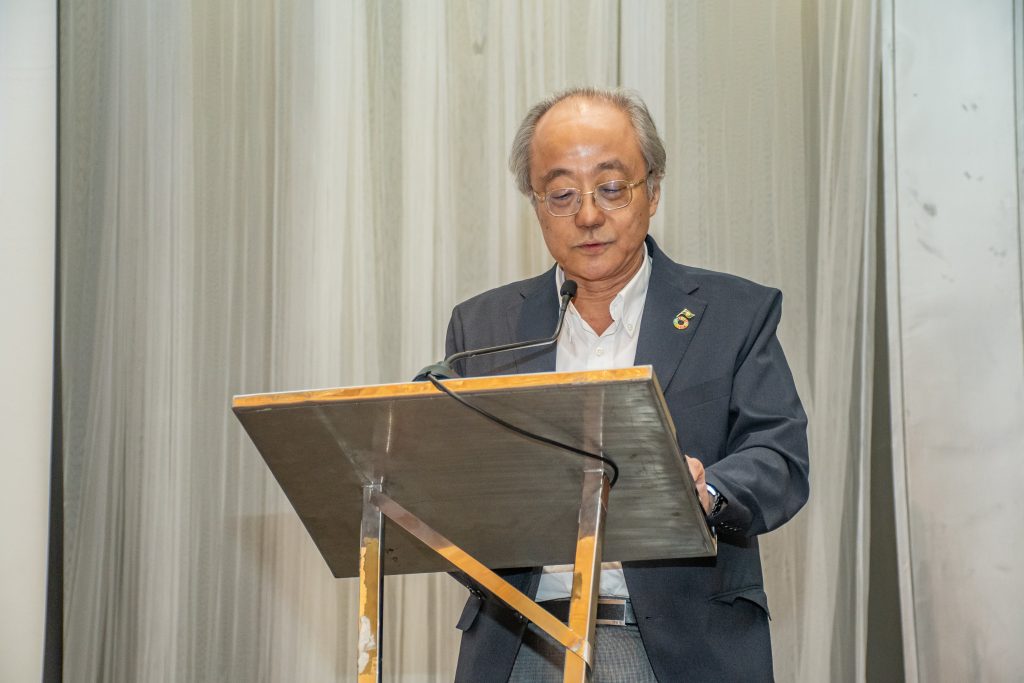
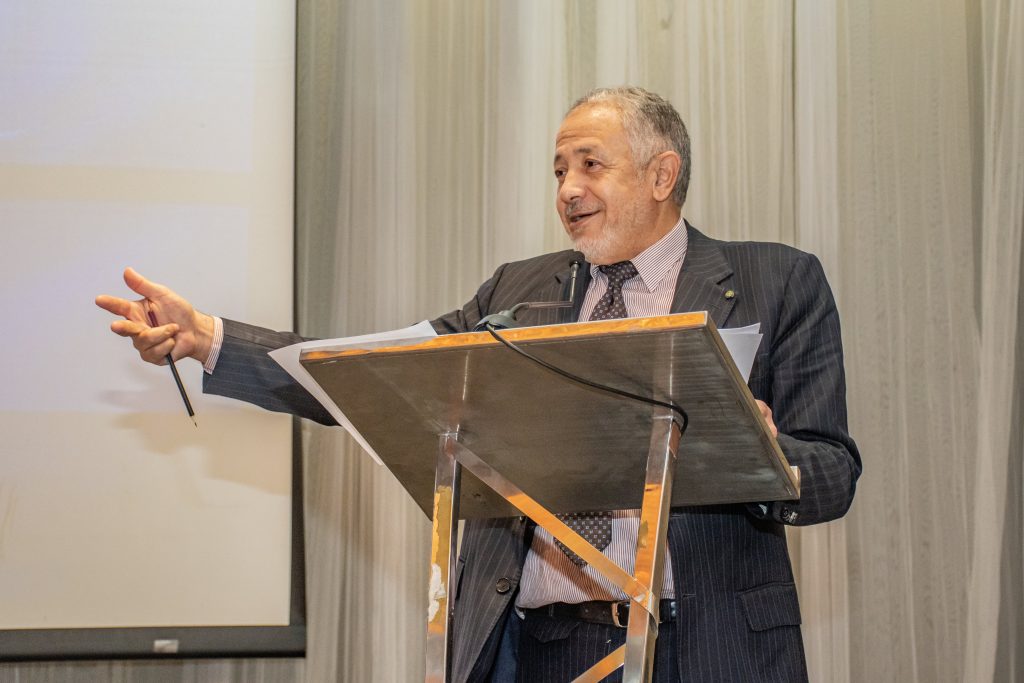
“The evidence is clear that climate change will have devastating effects on human and natural systems unless climate action is scaled and spread much more widely. Fortunately, we have the means available to enhance climate resilience and bring down emissions. All that is needed is that we make the choice to exercise the wide range of options available to us.” – Jim Skea (IPCC AR6 WGIII Co-Chair)
“The report from IPCC provides a crucial and fundamental scientific basis to strengthen the international cooperations under UNFCCC negotiation and also enhance the global response to the threat of climate change. Thailand is one among other countries utilize these key findings and other issues within the report to be a guideline for our policy setting and climate knowledge dissemination to the public and relevant agencies for a better understanding. This serves as a pavement to our way for the future implementation for Thailand.” – Nareerat Panmanee, Director, Climate Change Management and Coordination Division, Office of Natural Resources and Environmental Policy and Planning (ONEP – Thailand).
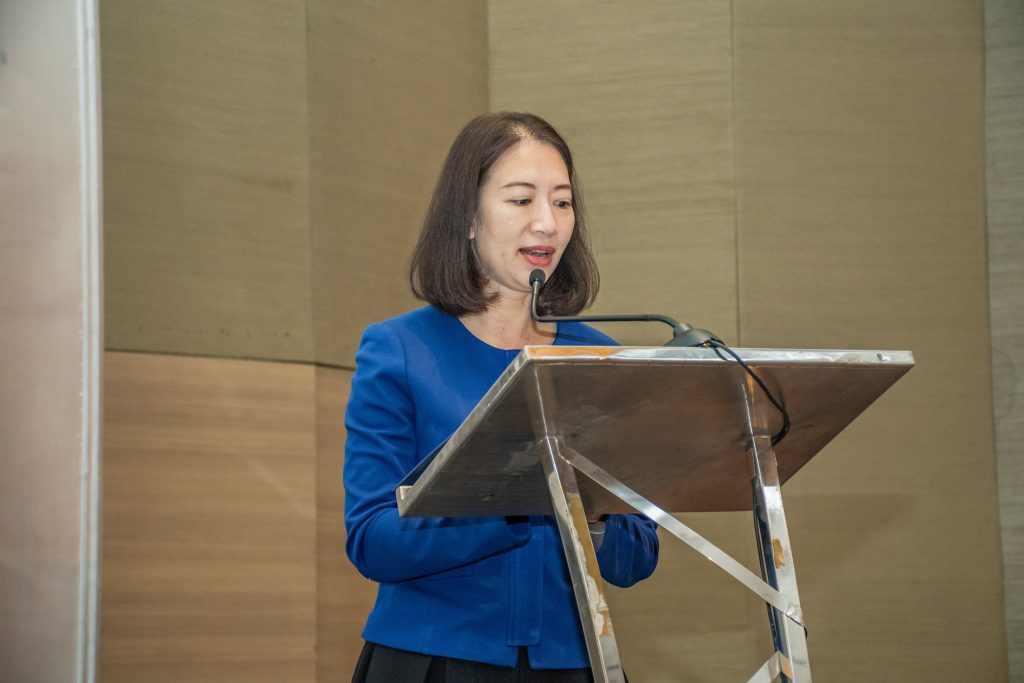
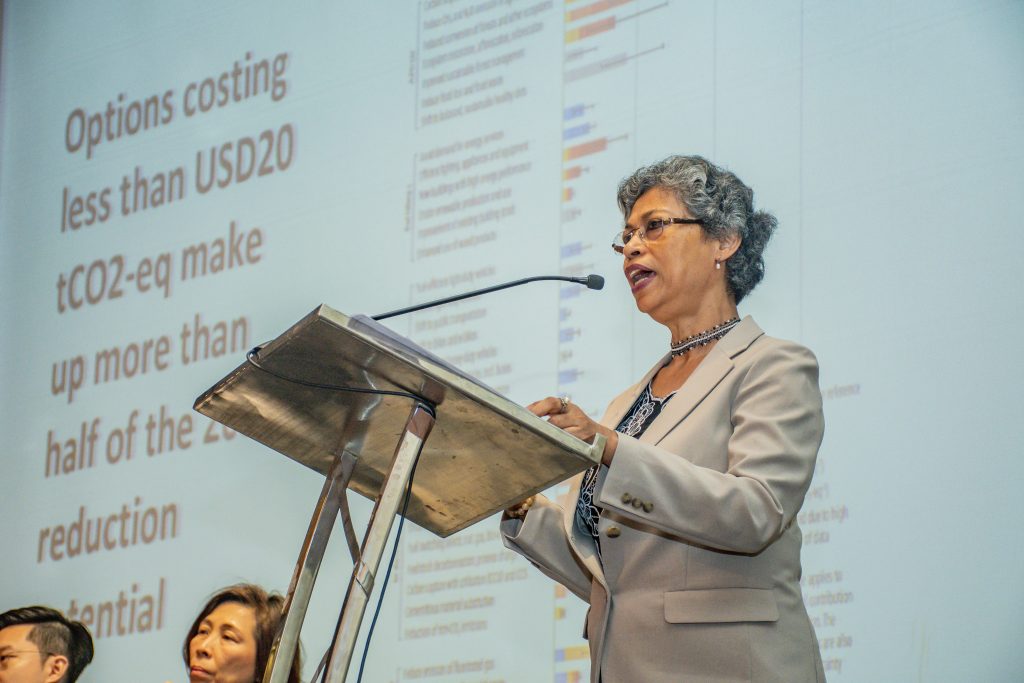
The crisis from climate-induced changes will be unfair, prominent, more profound, and far-reaching. With the increasing demand for sustainable development, climate services are likely to become critical drivers of business affluence. To emerge as leaders in the prosperous new climate economy, early movers need to recognize stranded assets, risks to critical infrastructure, new frontiers in end-use granular technology, and invest in people and social capital involving change architects’ said Joyashree Roy, IPCC author and Director of SMARTS-AIT.
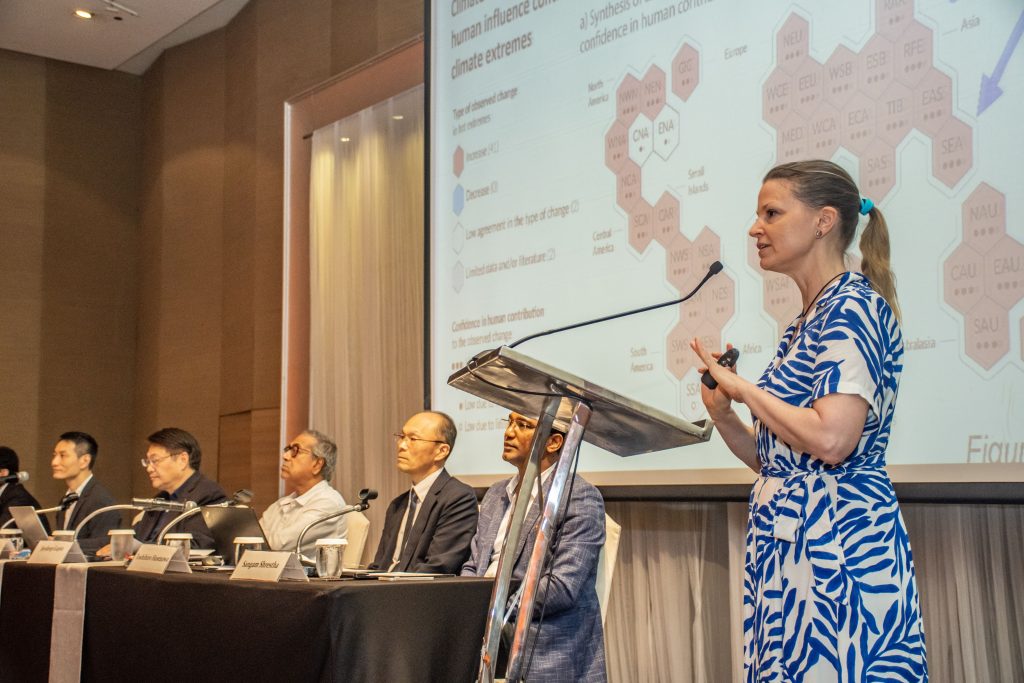
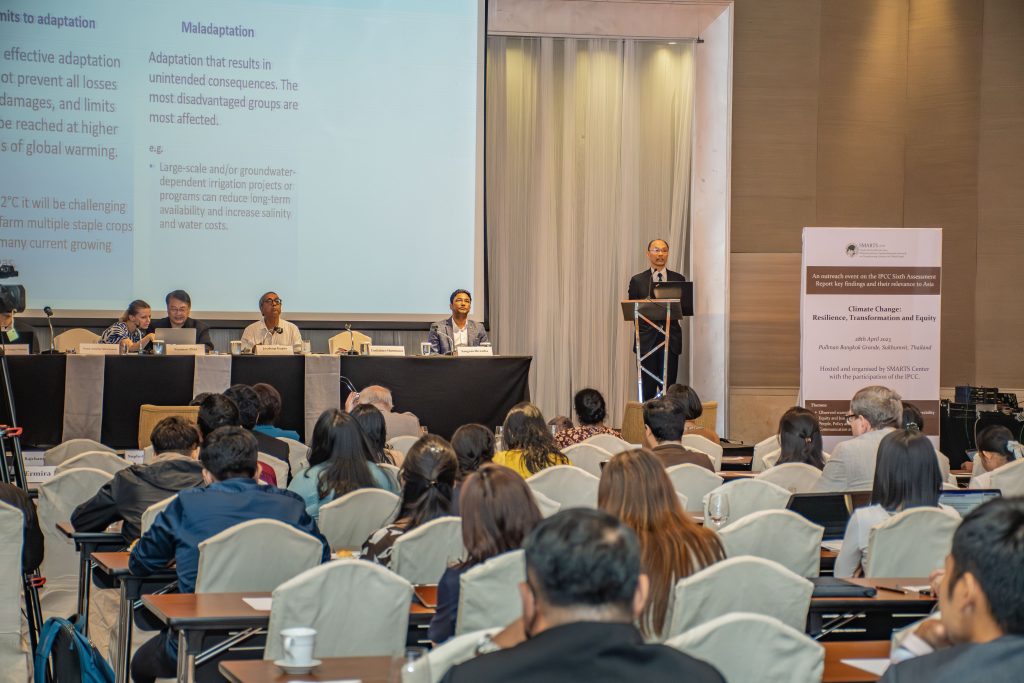
The event had four sessions, Session 1: Observed Warming and Future Scenarios: Impacts and Vulnerability; Session 2: Equity and Justice in Transformation; Session 3: People, Policy and Finance to Deliver the Change; and Session 4: Communication and Policy. Each session had expert speakers from the IPCC, academia, and other relevant organizations. Session 1 provided a high-level summary of the current state of the climate, possible climate futures, climate information relevant to regions and sectors, climate change impacts and risks, as well as adaptation. Session 2 elaborated on the pathways to achieve equity and just transitions in various sectors. Session 3 discussed the need for urgent action and the enablers that can help accelerate climate action, and the role of people and demand-side solutions. The last session, Communication and Policy, focused on how to communicate climate-related messages to satisfy the needs of various stakeholders.
The event successfully engaged the regional climate research and practitioner community, government, policymakers, decision-makers, businesses, civil society organizations, and climate activists contributing to the ongoing global discourse on climate change.
